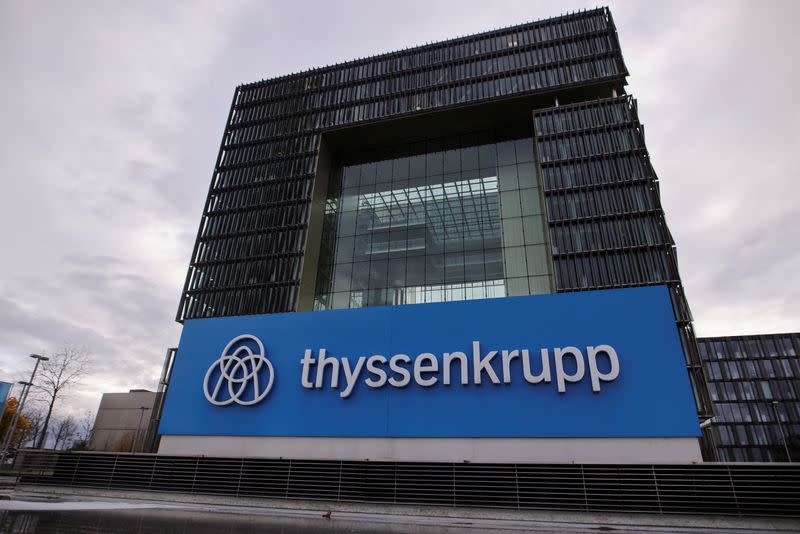Thyssenkrupp's new CEO faces impossible task: selling steel

By Christoph Steitz and Tom Käckenhoff
FRANKFURT (Reuters) -Thyssenkrupp's incoming chief executive faces the same task his three predecessors failed to get done: divesting its 200-year-old steel business on which the iconic German conglomerate was built.
Just how tough it is became clear on Monday when Martina Merz threw in the towel and asked to terminate her CEO contract five years early, a consequence of growing opposition to a plan to hive off the group's steel division, Europe's second-largest.
The sudden move, which caused the group's shares to fall for a second consecutive day on Tuesday, came after open rebellion from labour representatives as well as growing resistance from within her management board, two people familiar with the matter said.
Her likely successor, Norma interim CEO Miguel Angel Lopez Borrego, will have to navigate the same complex web of stakeholders that has made it impossible so far to sell what is arguably the company's most emotionally-charged asset.
"Thyssenkrupp's strategy is more unclear today than it was 12 months ago and the untangling of the company is proceeding too slowly," said Ingo Speich of Deka Investment, a top-20 investor, adding steel was the company's "problem child".
For the past decade, management has considered steel a millstone around Thyssenkrupp's neck due to its cyclical nature, yet previous efforts to merge the division with a peer, sell it to a rival, list it or spin it off have all failed.
Hendrik Schmidt, governance expert at DWS, among Thyssenkrupp's top-10 shareholders, said that while steel would be a key part of Borrego's to-do list he also needs to find solutions for the group's defence and hydrogen units.
"We have to ask ourselves whether we are facing another period of uncertainty ... which is costing the company and its owners money, and is stoking fears among its employees," he said. "I hope there won't be two more years of strategy work."
CAUGHT IN THE THYSSEN WEB
Steel has traditionally been a stronghold of German labour unions, the consent of which is required for any major restructuring moves under co-determination rules. Worker representatives also hold half of the 20 seats on Thyssenkrupp's supervisory board.
Then there's the conglomerate's biggest shareholder, a not for profit foundation set up by the last member of the Krupp family to lead the steelmaker, which is engaged in charitable work and does not have the capabilities of a wealth manager.
Borrego, 58, is no stranger to complex set-ups. He formerly served as finance chief and then chairman of Siemens Gamesa, itself the product of the troubled merger of the wind activities of Siemens with Spanish rival Gamesa.
Expected to join as CEO on June 1, he will be Thyssenkrupp's fourth CEO in less than five years to have a go at simplifying the group's conglomerate structure, which apart from steel also covers submarines, car parts and materials trading.
Marc Tuengler of DSW, a lobby group that represents Thyssenkrupp's private shareholders, said it almost didn't matter whether steel remained part of Thyssenkrupp or would be sold, as long as there was a clear decision.
"The question has become so entrenched that taking one of the two paths would provide clarity and relief," he said.
If Thyssenkrupp's stock is anything to go by, there's not much hope riding on the sudden CEO change: the group's shares have lost nearly 15% since the announcement.
"We will see if the new CEO can deliver decisions able to regain investor confidence or if he gets caught in the Thyssenkrupp network," wrote Christian Obst of Baader Bank, which according to Refinitiv Eikon holds a 0.01% stake in the group.
(Reporting by Christoph Steitz and Tom Kaeckenhoff; Editing by Friederike Heine and Emelia Sithole-Matarise)

 Yahoo Finance
Yahoo Finance 